Equity in Data, and in Grantmaking: DASH’s Incubator
Data Across Sectors for Health (DASH) is launching a new grant and support program for past DASH grantees. The program’s goal is to advance equity in data ecosystems – and in grantmaking – by lifting up the priorities and leveraging the expertise of community-based organizations, and, crucially, of the community members they serve.
Shift Toward Data Equity
Since 2015, DASH has helped community organizations, healthcare systems, and government agencies work together in their collection and use of data to effectively bolster community health.
When entities work across sectors, they can much more effectively address different but often deeply connected needs in the community (think of mental health, housing, substance abuse, and family services) while preserving the dignity and humanity of community members.
Past DASH grantees are seeing the fruits of their hard work, as many multisector collaborations have matured since receiving support from DASH. Steps that once seemed formidable, such as establishing common terminology across partners or setting up shared-data protocols, are now taking shape more often and more easily.
DASH’s next initiative is an exciting bid to build on those successes to foster a shift toward data equity.
What’s in a Spreadsheet?
When people think of health-related data, numbers, labels, or Xs on a spreadsheet most often come to mind. But that data are representations: each data point captures a tiny part of someone’s life – and therein lies the risk. Depending on what information we seek and how it is collected, data can also erase crucial parts of a person’s life, resulting in partial or inaccurate representation.
If you are part of a demographic that is considered statistically insignificant, what happens to your story? If research is always about you but never alongside you, what happens to your trust? And if you’ve experienced decades of studies in your community yet few resulting benefits, what happens to your hope?
Data scientist Catherine Helen O'Neil likes to say that algorithms are just opinions embedded in code. Similarly, if we don’t tend to our health-related data carefully in multi-sector collaborations, then the data will simply reflect inequities that already exist.
Data equity, on the other hand, seeks to identify, reckon with, and eliminate these indignities and inequities.
The Incubator Program
Members of the DASH team have been thinking about data equity issues for years. Our latest venture aims to address data inequities through what we call the Incubator program.
As incubators do, ours will provide (virtual) room, nourishment, and safety – in this case in order to help organizations cultivate their equitable data practices, with the added benefit of doing so amongst a community of peers.
The organizations taking part in the Incubator will not simply receive money and guidance, as with typical granting programs. Rather, they will be co-creators of the program, working with each other and with DASH staff and partners in an innovative and supportive space to plan, develop, and implement the Incubator. Participants will start with the goal of advancing equitable data ecosystems as defined in the DASH framework. Beyond that, the program’s shape has not yet taken form – that is the work of the Incubator participants.
For DASH, this unique practice will mean removing the usual parameters around time and money that may be useful for us grantmakers but that tends to work against the interests of receiving organizations. It will mean replacing hoop-jumping with listening – and benchmark deliverables with conversation. It will also mean not knowing from the outset what participating organizations want and need – and that’s okay.
For the participating organizations, it will mean embracing an asset-focused stance. When an organization asks their community “What can we do to support your knowledgeable ideas?” rather than “How can we fix your terrible problem?” their guiding question is rooted in an assumption of competence rather than one of helplessness. This can be a mindset-altering shift. The Incubator will help participating organizations make this shift.
Does this sound intriguing? Exciting? Like a step toward greater change?
It does to us! If your organization is a former grantee who has multi-sector data-sharing procedures in place, and you are interested in learning more about being a participant in the Incubator, watch the recording of our webinar. The webinar covered what got us to where we are, where we are hoping to go from here, and what factors we think may help interested organizations determine whether the program is a good fit for them.
You can download the presentation slides here.
If you’re interested in participating in the Incubator program, please email Stephanie Johnson at sjohnson@mphi.org.

